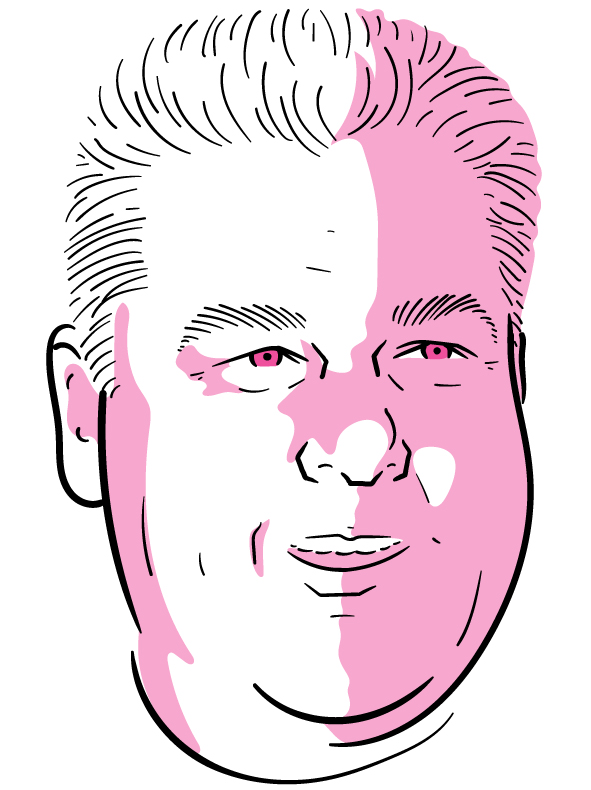FEATURES:
- From the Napulitano (Neapolitan) word cumpare
- Alternate spellings: gumbah, cumpà, goomba
- Original meaning: “godfather”
- New York City mayor Bill de Blasio: not a goombah
Growing up in my part of Long Island, New York, in the 1990s was like being in The Sopranos, minus the Mob. Nearly everyone claimed some Italian heritage—I proudly asserted that I was three-quarters Italian, though my last name betrays the Irish remainder. We had our choice of a half dozen pizza joints within a mile of our house; our pork store was Maria’s Italian Deli, where we went for chicken cutlet heroes after Mass. When I went to friends’ houses for playdates, I came home smelling like other moms’ meatballs and sauce. (“Gravy” is a Jersey thing.) My own mother started her sauce in the morning. I would wake up to onions stinging my eyes.
This is all to say that I was raised among goombahs—the buddies, the family friends, the comrades, the paesans. The guy who sliced our cold cuts at Maria’s was a goombah; so were the men behind the counter at Romeo’s Pizzeria on Dogwood Avenue. Likewise, my classmates who gelled their hair into blowouts and my dad’s cousin Frankie, who wore a gold chain and the top three buttons of his shirt undone.
Goombah-ness is hard to pin down and explain outside of Italian American circles, mostly because it doesn’t exist outside of them. To me a goombah is affable, a little dopey, and most of all good-hearted, the kind of man who makes sure you have a plate full of spaghetti and a glass full of wine. A goombah is proud of being Italian but has likely never been to Italy. Governor Andrew Cuomo, with his performative tweets about Sunday meatball dinners, wishes he were a goombah. Bensonhurst-born Dr. Anthony Fauci is too intellectual to be one. Pete Davidson is barely Italian, but his smirk and basement apartment in his mom’s house on Staten Island give him that goombah sheen.
I don’t remember formally learning the word; it was simply in the soup of language surrounding me in a place where most people don’t actually speak Italian or the dialects of their grandparents’ regions, but they do hold on to slang. Italian Americans got goombah (or gumbah, or cumpà) from the Napulitano (Neapolitan) word cumpare, which is why it sounds like a strangling of the standard Italian compare. The original meaning of all these variations is “godfather,” the man who sponsors a baby’s baptism: a close friend or family member, someone you trust. Dialects in the Mezzogiorno, or the South—to which most Italian Americans trace their heritage—tend to soften or cut off the final vowel of a word, turn unstressed vowels into schwas, and swap a hard c with a g. This is how we turned compare into goombah, capicola into gabagool, and cavatelli into gavadeel.
These transformations mirror my own family’s story. In the 1900s, my father’s maternal grandparents joined the millions leaving the poor, rural Mezzogiorno and passed through Ellis Island during a period of Western European–friendly immigration policies. Settling in Brooklyn, they both spoke dialects of Napulitano, the southern Italian language named after the Kingdom of Naples. But they bent toward assimilation, giving each of their thirteen children an American name—Mary, not Maria; Victor, not Vittorio—and wanting them to speak English. My father, though, was enamored of language and etymology, and studied standard Italian—the language that spread across the country upon its unification, in the mid-1800s—in college. When I began learning Italian, in junior high (so Italian American was my hometown that it was offered at my public school), he taught me about false cognates (parenti means “relatives,” not “parents”) and syntactic doubling. We could speak in Italian to each other for only about two years, though—he died in 2004. I don’t remember asking him where the word goombah comes from, though I’m sure he would have had a lesson for me about that too.
His sisters tell me that in their childhood home, where they lived with their southern Italian grandparents, they didn’t say goombah, but cumbada. The a thrown on at the end softened the word, made it applicable to women—most precisely to Rose Cunetta, a distant cousin of my great-grandmother’s. Rose had a gold tooth, gave too many baci, and smelled like garlic. My aunt Mary Ellen says there were two kinds of Italians when she was a kid: those who always made their own pasta and used a lot of garlic, and those who didn’t. Their grandmother was the latter, Rose Cunetta was the former, and thus was a cumbada. It makes perfect sense to me to use the word for people who cling closely to the home country.
As goombah spread beyond sauce-scented kitchens to representations of Italian Americans in pop culture, its original meaning of “godfather” got mixed up with the meaning of the word in Mario Puzo and Francis Ford Coppola’s The Godfather, giving it a derogatory bent. The Oxford English Dictionary even lists Puzo’s 1969 novel as one of the first recorded uses of goombah: “I don’t care how many guinea Mafia goombahs come out of the woodwork.” (Guinea, of course, is an ethnic slur; Puzo’s sentence is painfully redundant.) A goombah became an accomplice, a mafioso. The Sopranos further cemented the Mafia tint of the word, and also introduced its non–
Italian American audience to goomar—which originally meant “godmother” but over time had been twisted to “mistress.”
My husband, a paesan by way of Nutley, New Jersey, says the epitome of a goombah is Bobby Baccalieri, a.k.a. Bacala, of The Sopranos: a big, bumbling guy who just wants to love his wife and play with his trains. Appropriately enough, Steve Schirripa, who played Bobby Bacala, wrote a book on the identity, 2002’s A Goomba’s Guide to Life, then doubled down with a second number, The Goomba’s Book of Love: How to Love Like a Guy from the Neighborhood, released the next year. (He took a third swing at the subject with 2006’s The Goomba Diet: Living Large and Loving It.)
I use the term when I want to explain to my friends just how Italian American the people I grew up around are. For me, it’s always coupled with the word big, and I usually turn it into an attributive noun, as in “I’m at a big goombah family party on Staten Island.”
But where goombah has been somewhat marred by its use as an epithet, I prefer the slang terms that started out as insults. My parents favored gidrool, which means a stunad (a stupid person), but worse—someone who’s buffoonish. It comes from the word cetriolo, or “cucumber.” (The French call bigwigs “les grosses légumes.”) Governor Cuomo and Mayor Bill de Blasio, to me, are prototypical gidrools: their 2016 pissing contest over who had custody of a deer on the loose in Harlem was a prime example of their chest-puffed incompetence. (The deer died.) Gavone, from the word cafone,or “peasant,” also means an oaf, but one who can’t stop stuffing his face. A chooch is a “jackass,” and comes from ciuccio, or “pacifier.” Weirdly yet fittingly, my childhood best friend and I enjoy using these last two to describe our cats.
If my ancestors were alive, my Italian would be unintelligible to them. The Italy I have lived in is worlds away from the one they left behind. Still, I’ll keep using all this slang, not so much out of pride or a desire to preserve my roots, but because it feels untranslatable, into either standard American English or standard Italian. As Schirripa notes, with surprising alacrity: “There are no goombas in other countries, even Italy.” Goombah, gidrool, gavone—these words are their own slice of language, born of the liminal space created by immigration, and hearing them makes me feel at home.






